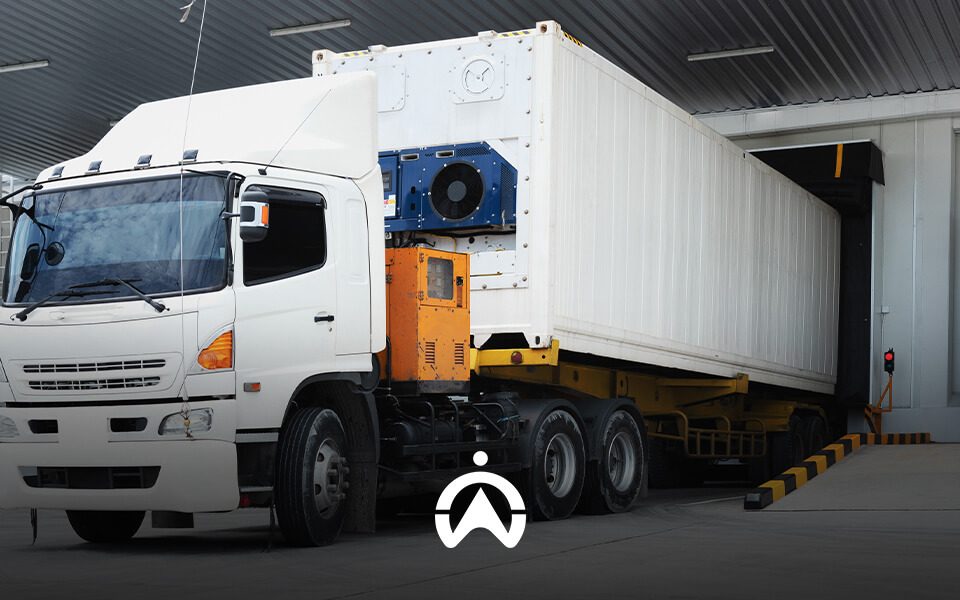Sustainability in business – 5 new guaranteed ways to green your fleet
Implementing sustainable practices in your fleet is one of the best ways to increase cost savings and ensure that you reduce the environmental impact of your business.
When it comes to sustainability in business, finding the simplest most efficient ways to introduce green fleet practices is a priority over purchasing new vehicles.
We unpack all the ways you can make your fleet greener, right here.
What is fleet sustainability in business?
Before we reveal all the ways you can turn your business green, let’s just get a good understanding of what fleet sustainability in a business is.
Fleet sustainability refers to the process of reducing the environmental impact of a fleet operation by introducing eco-friendly/green practices and advanced technology.
In 2024 more businesses are interested in improving their fleet sustainability for the sake of helping the environment but are challenged by concerns over how to make their fleet more green and the associated cost of introducing greener solutions.
However, thanks to technology, businesses can adopt several management strategies to boost their sustainability efforts. Before we get to these strategies.
With all that said, what are the current actions that make a business’s fleet operations unsustainable?
Fleet sustainability challenges in businesses
Businesses have a responsibility to ensure that their fleet operations have a more positive impact on the environment. At present, fleet sustainability is one of the major challenges for businesses as more policies and regulations demand that they make an effort to develop a green fleet. It is simply no longer an ethical question, but an ethical demand from businesses.
A fleet sustainability strategy is valuable for businesses challenged with:
- High rates of carbon emissions
- Inefficient fuel consumption practices
- Reckless driver behaviour and poor productivity
- Compliance with regulations
- Eliminating their paper process
With these challenges, it would be a mistake to think that new electric vehicles are the only solution for your fleet. While fleet electrification is an excellent opportunity for businesses to go green, there are more immediate ways that businesses can improve their sustainability practices.
Fleet managers are the starting point for your business’s sustainable fleet operations, here’s why.
A manager’s role in sustainable fleet management
Fleet managers oversee all movements and activities of fleet vehicles and drivers, to ensure deliveries are made and jobs are completed timeously. Additionally, they ensure drivers are kept safe by practising good driving behaviour and are compliant with regulations.
Overseeing all fleet operations is sometimes a stressful and overwhelming task. To efficiently get on top of everything, fleet managers use fleet management systems to increase visibility and allow for better management of their assets.
With fleet management systems, fleet managers can achieve:
- Reduced overall fleet costs
- Improve fuel efficiency and cut fuel costs
- Monitor vehicle movements
- Streamline deliveries
- Enhance fleet safety
- Increase driver retention
- Schedule maintenance on vehicles
- Comply with regulations for drivers and vehicles
Imagine juggling delivery deadlines, driver safety, and regulatory compliance activity for a fleet operation of 10, or 20. With so much already going on, fleet managers are intimidated to add sustainable strategies to their already full plate.
There are a few guaranteed ways that businesses can go greener, here are five:

Five guaranteed ways to make your fleet greener
The best way to green your fleet is to create a sustainable fleet management strategy, which involves a few things.
Firstly,reducing your carbon emissions. Secondly, improving your fleet fuel usage. Thirdly, keeping up with vehicle maintenance. Fourthly, improving your driver’s behaviour on the road also helps boost sustainability in business.
And lastly, upgrade your fleet with electric vehicles and advanced telematics solutions.
Here’s all the ways you make your feet greener:
1. Reducing Carbon Emission
According to Our World in Data, transport accounts for around 20% of global carbon dioxide (CO2) emissions. 15% of this comes from road travel, through cars and buses carrying passengers, as well as trucks carrying freight. Stats like this show why the transport industry needs to adapt to greener ways.
Companies across all industries and sectors must understand what their operations’ carbon emissions are, and how to calculate their carbon footprint. And consequently, understand how these emissions contribute to global warming.
High carbon emissions mean that a business has unsustainable practices, and these negatively contribute to the environment and contribute to worsening climate change globally.
Here are some simple ways to lower your fleet carbon emissions quickly:
- Introduction of low-or-zero emission vehicles
- Ensuring your fleet size matches your fleet needs
- Tracking fuel usage
- More efficient route planning
Lowering your fleet’s carbon emissions is not as technical as it seems, but it is one of the best places to start if you want to make your fleet greener.
2. Enhance Fuel Management
Reducing carbon emissions goes hand in hand with your fleet’s fuel efficiency. Without efficient fuel management strategies, businesses will experience high fuel consumption, high fuel costs, fuel theft, fuel card fraud and other costly losses regarding fuel.
In addition to this, some driver behaviours and maintenance issues also contribute to your fleet’s high fuel consumption such as:
- Unnecessary idling
- Excessive speeding
- Poor tyre conditions
- Neglected maintenance
- Shorter travel distances
- Faulty engines
- Poor driving habits (gears, clutch usage)
- Overloading of freight
By enhancing fleet management with fuel management, your businesses will benefit from reduced fuel costs and consumption. More importantly, it will adopt green sustainable practices by reducing fuel consumption and cutting unnecessary fuel emissions.
3. Keep Up with Vehicle Maintenance
Environmental fleet sustainability can be improved with good vehicle maintenance. Through routine maintenance, businesses can increase the lifespan of their vehicles and as a result, ensure that the carbon footprint in their fleet does not increase.
Since vehicles will inevitably wear out over time, vehicle maintenance can help businesses handle the wear and tear of their fleet.
Did you know that vehicle issues such as faulty engines, breaks, gears and worn clutches also contribute to your fleet’s harm to the environment? One of the benefits of vehicle maintenance is how it improves environmental fleet sustainability.
Well-maintained vehicles:
- Increase the life cycle of your fleet
- Help your fleet burn less fuel
- Reduce the overall fleet costs
Not only would your business benefit from increased savings, and a seamless fleet operation but your fleet would also be greener.
4. Telematics Solutions
Telematics is a technology that makes use of telecommunications and informatics to collect GPS fleet tracking data and a range of other vehicle-specific information. The informatics you get from your fleet management system or telematic solutions can be used to help your business implement green solutions.
Your telematics system already gathers and compiles all the data you need to understand your fleet. You get in-depth data on vehicle speed, braking, and the areas the vehicle travelled to and from. This offers viable information on how to increase the sustainability of your fleet.
To create a green fleet system, you must keep track of everything that happens in your fleet. Use fleet technology to track emissions, idling, and other metrics as part of your green fleet operations.
5. Improve Driver Behaviour
Did you know that speeding, idling, poor driving technique and behaviour can waste fuel for your fleet? Moreover, these poor driving habits create pollution. According to the Department of Energy, idling for more than 10 seconds uses more fuel and produces more emissions than stopping and restarting your engine does.
Idling and speeding can use more fuel than you realise, increasing your business’s fuel consumption and negatively affecting the environment. As simple as it sounds, improving driver behaviour helps make your fleet greener.
Fleet managers can improve driver behaviour by training drivers with fuel-efficient driving techniques, including techniques on how to reduce idling. Instilling good driving techniques can lower your business’s carbon footprint, so nip these bad habits in the bud early on so they become a part of your driving culture.
There are other ways for companies to make their fleet greener. One of those is fleet electrification. Although fleet electrification is not easy to implement, it is worth the consideration, here’s why.
Are electric vehicles a guaranteed way to lower your fleet’s CO2 emissions?
The future of transportation is electric. Electric vehicles (EVs) are revolutionising the way businesses move, offering sustainability, cost savings, and a competitive edge. But what exactly are EVs, and are they a guaranteed way to lower your fleet’s CO2 emissions?
Electric vehicles, commonly known as EVs, are vehicles designed to operate entirely or partially using electricity as their primary source of power. Contrary to conventional vehicles, which rely on gasoline or fossil fuels, electric vehicles make use of an electric motor that draws energy from rechargeable batteries or fuel cells.
There are two types of electric vehicles:
Battery Electric Vehicles (BEVs): These are powered entirely by electricity that is stored in batteries.
Plug-in Hybrid Electric Vehicles (PHEVs): These feature both an electric motor and a regular petrol or diesel engine.
Adopting low or zero-emission vehicles has numerous benefits for businesses:
- Positive impacts on the environment
- Sustainable energy source
- Decrease fleet fuel costs
- Reduce maintenance costs
But this is often the most difficult solution to implement for sustainability in business. Here are some factors that hinder this implementation:
- The high initial price of electric vehicles
- Availability of charging stations for your vehicles
- Battery degradation and replacement costs for vehicles
While purchasing electric vehicles may seem like the only impactful solution to improve sustainability in business.
There is another solution companies often overlook that they can easily adopt — a fleet management system.
Four ways Cartrack’s fleet management software helps businesses go green
An effective fleet management software can help your business improve its efforts in going green and successfully implement a sustainable strategy for its fleet.
Here are a few ways Cartack’s fleet management system can help you achieve this:
1. Preventative maintenance
Cartrack Swaziland fleet management system helps you keep up with all your fleet maintenance needs. Fleet managers can set up maintenance plans track service intervals, and receive reminders on service and repair dates. In addition to this, fleet managers can receive real-time alerts on the condition of their vehicles like engine faults, brake pads, oil and water fluctuations as well as other vehicle diagnostics. Preventative maintenance is an excellent way to ensure your fleet is in the best condition for operations, doing this helps ensure that your fleet has a lower carbon footprint and reduces its greenhouse gas emissions. A well-maintained fleet also reduces the negative impact of your vehicle on the environment.
2. Route planning
Companies that use Cartrack’s Delivery’s route optimisation feature, report driving less mileage and saving more on fuel. This is because, Cartrack Delivery calculates the best routes for your drivers to take, so they can avoid traffic or driving unnecessary distances to reach their destination. Route planning helps businesses ensure that their fleet lowers their carbon footprint, and reduces their fuel consumption and costs. These two features can help businesses instil sustainable driving practices to lower their toll on the environment.
3. Driver behaviour insights
Reduce your carbon footprint with driver behaviour insights. These driver behaviour reports are sent straight to fleet managers, allowing them to when drivers speed, brake harshly, idle for long periods or drive recklessly. These insights can help fleet managers identify what training their drivers need, but also keep them accountable to ensure more safe and eco-driving practices are applied in your business.
4. Fuel management
Cartrack Swaziland fuel monitoring system helps businesses easily keep track of their fuel consumption, fuel costs and fuel waste. Fuel monitoring accurately monitors your fuel consumption with per-kilometre reporting. This allows fleet managers to easily identify and tackle fuel waste issues and uneconomical driving, helping them in their efforts towards running a greener more sustainable fleet.

What are the benefits of implementing sustainable practices?
Implementing sustainable practices is not only an ethical obligation for businesses, or a box they can tick to say they have done their part. Sustainable practices benefit not only the environment but also businesses.
Here are some of the benefits of going for a green fleet:
Increased fuel savings
Since fuel is one of the most significant costs to your fleet, adopting sustainable practices, such as fuel management, route optimising and eco-driving practices, will reduce your fuel costs and thereby increase your fleet fuel savings.
Less fleet maintenance
Through preventative maintenance and by keeping up with the needs of your fleet vehicles businesses can ensure that their fleet runs smoothly. In the long run, your fleet will benefit from less maintenance and the loss from unexpected costs.
Improve your reputation
Making your fleet green communicates that your business is concerned about the environmental impact of its operation. This improves your reputation with your partners, customers and other companies.
Sold? Here are some quick tips on where you can start with making your fleet greener.
Quick guide to kick-start your green fleet practices
Making your fleet greener does not have to cost your business too much money. So here are some quick tips on where to get started for your business:
Tip #1 Understand your fleet
Begin by understanding your fleet, from the number of vehicles your business has to the different activities your vehicle is used for and the current carbon footprint your business has.
Tip #2 Understand your drivers
Gather insights on your driver’s skills and behaviours. Doing this will help you identify areas of improvement for each of your drivers.
Tip #3 Set sustainable goals for your business
Depending on your fleet size, your fleet’s current cost of operations as well as your current carbon footprint, fleet managers can set up sustainable goals for their business to achieve.
Tip #4 Implement sustainable strategies for your fleet
Goals should be accompanied by strategies for achieving them, and fleet management systems can help fleet managers come up with strategies to green their fleets.
Tip #5 Track your performance
Using a fleet management system and measuring their goals and strategies, fleet managers can track the performance of their fleet, and calculate the benefit of these sustainable practices.
Drive Green with Cartrack Swaziland
A greener fleet means your fleet operations are more environmentally friendly and what businesses don’t want to improve their sustainability practices, especially if it helps you attract new business opportunities, saves you money and is great for the environment?
Ready for Cartrack Swaziland to help you drive greener? Chat with us here.




